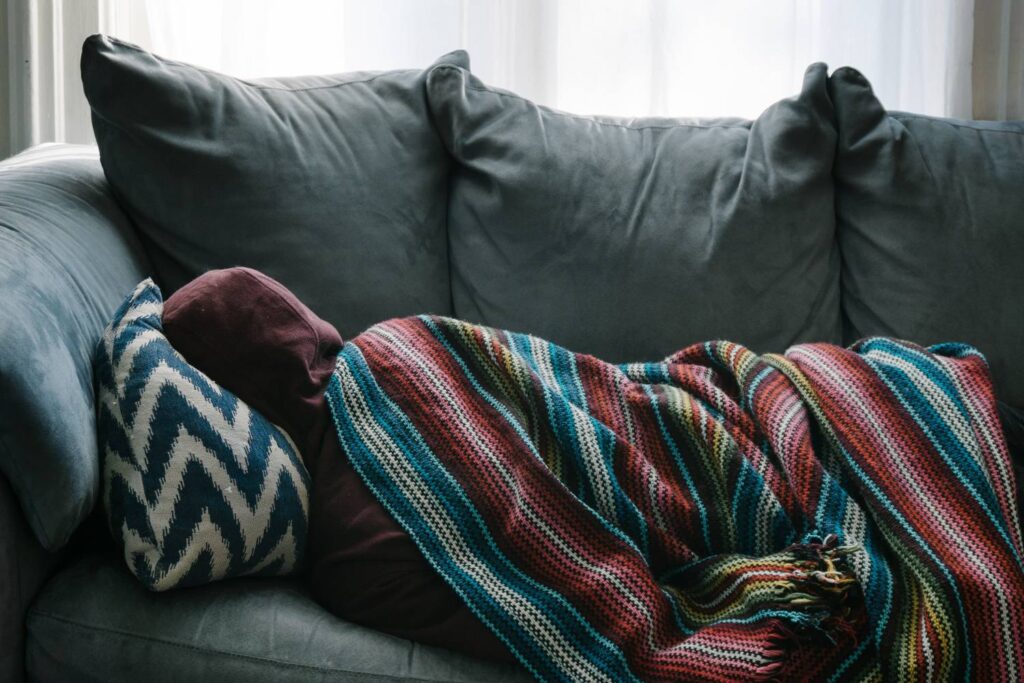Julie Pichler, We Are Wellbeing Nutrition Coach, provides advice on work related stress and how to ensure we properly relax…
What is ‘Lesiure Sickness’?
Why is it so common to feel unwell during the one time we’re actually trying to take a rest?
It’s such a common phenomenon, it now has its own term “leisure sickness” coined by Dutch psychologist Professor Ad Vingerhoets, who surveyed almost 2,000 Dutch people and found around 3% of them reported getting colds and flu or having niggles such as headaches, fatigue or nausea when they took a break from work. There are a number of reasons why our immune system finally throws in the towel, just as you try to lie on one.
Work related stress
Often in the run up to a holiday, there are more pressures than usual trying to clear our workloads. Stress in the short term is a good thing; it helps us focus and provides us with energy and adrenaline helps drive our ‘fight or flight’ nervous system, an evolutionary protection to help you run away from danger. However, in the long term, stress leads to high levels of the hormone cortisol which can lower the functioning of our immune system which protects us from common viruses and bacteria responsible for colds and flu.
When we start to relax and enter our ‘rest and digest’ part of the nervous system, we can also begin to notice things about our bodies that stress was masking. Prolonged high cortisol rates can also increase our pain threshold, enabling us to keep pushing through minor headaches, sniffles or back aches without noticing. Only when the cortisol levels start to drop do these complaints come to the fore.
A greater exposure
There’s a good chance on holiday you’ll be doing more socialising, or travelling involving close proximity to strangers. All those extra bugs at time when your immune system is compromised can be a tipping point at just the wrong time.
How is your sleep?
When we take a holiday, there may be disruption to our sleep patterns, be it from changing time zones, or reduced sleep due to activities or alcohol. One of our main drivers to promote sleepiness is melatonin, a protective hormone that has a role in managing stress and our immune systems. Our society doesn’t necessarily reward an early night, and often our sleep quality and quantity takes a hit before or during our holidays, placing another load on our immune system.
Change your routine
Holidays can be synonymous with increased alcohol and rich foods, which can upset our immunity, 70% of it residing in our digestive tract. A couple of drinks may feel like they are having a sedative effect, but can be detrimental to our sleep quality, and result in dehydration the following day. Fatty and spicy foods we might struggle to digest, and consuming foods close to bedtime, can again disrupt our sleep quality.
How to protect yourself from leisure sickness:
- Managing stress – leisure sickness can be a clear signal from your body that you need to go somewhat easier on your work, and strive for more balance in your life. Is there a conversation to be had about workload, or someone you can ask for help with at home?
- Maintain your exercise regime – evidence suggests maintaining your exercise regime that may be squeezed out by other commitments can support your immune system from that tipping point.
- Maintain a healthy diet – include foods rich in antioxidants, like leafy green vegetables, berries and citrus fruits. Vitamin D is also a great boost for your immune system with supplementation recommended October to March in the UK, as we make most of this vital nutrient from sunlight on our skin. Darker skins may be even more prone to low levels of vitamin D.
- Regular hand washing – whilst this is drummed into us post Covid, communal surfaces are a breeding ground for common cold and flu, and we touch our face more than 20 times an hour without realising.
- Hydration – when our immune system is working hard to keep us healthy, it needs water to do this, particularly through lymph tissue to excrete toxins and pathogens, which is 90% water. Dehydration will make any illness feel much worse, water, herbal teas and infusions are best.
Keep yourself healthy by following these steps to protect yourself from lesuire sickness. Also share this post on your feed to help others stay alert and active when away from work. Work related stress has serious repercussions and needs to be addressed







